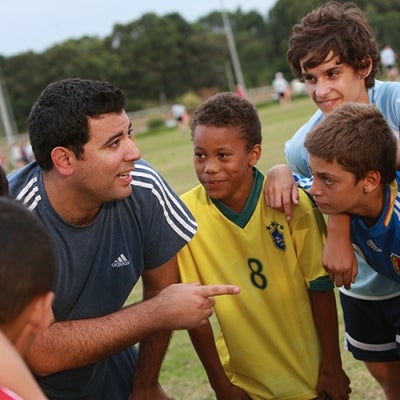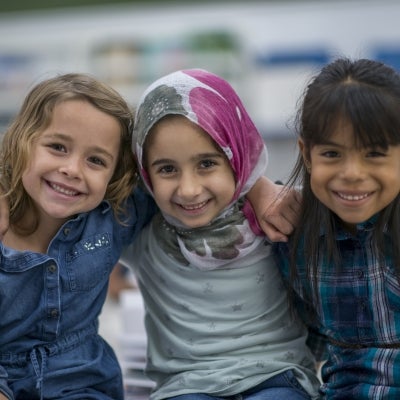Refine results
-
Legal14 December 2012Webpage
Inquiry into hearing health in Australia (2009)
This submission is based on research conducted by the Commission into hearing impairment and deafness in Aboriginal and Torres Strait Islander communities in 2009. The submission therefore focuses exclusively on hearing health in Aboriginal and Torres Strait Islander communities. The Commission only commenced this research recently but it is expected to be completed by December 2009. -
14 December 2012Book page
When the Tide Comes In: Towards Accessible Telecommunications for People with Disabilities in Australia
3.1 Introduction 3.2 Disability Discrimination Act 1992 3.2.1 Introduction 3.2.2 DDA Definitions 3.2.3 DDA Complaints 3.2.4 Intervention in Court Proceedings 3.2.5 DDA Disability Standards 3.2.6 Granting by HREOC of Temporary Exemptions 3.2.7 Action Plans 3.2.8 Conduct of Inquiries by HREOC 3.2.9 Advisory Notes and Guidelines 3.3 Telecommunications Act 1997 3.4 Telecommunications (Consumer… -
14 December 2012Book page
NATIONAL EMPLOYMENT INITIATIVES FOR PEOPLE WITH DISABILITIES
The discussion paper was commissioned by my predecessor, Dr Blewett, as part of the Federal Government's disability reform agenda. Prepared by Ms Chris Ronalds, with assistance from the Labour Research Centre, the paper addresses the following issues: -
Legal14 December 2012Webpage
SJU: Submission to Inquiry into Aboriginal Customary Law in NT
To access the Executive Summary of the Aboriginal and Torres Strait Islander Social Justice Commissioner's Submission to the Northern Territory Law Reform Committee Inquiry into Aboriginal Customary law in the Northern Territory click here. -
14 December 2012Book page
National Disability Strategy: Australian Human Rights Commission Submission
The Australian Human Rights and Commission (the Commission) makes this submission in response to the Australian Government's Discussion Paper on a National Disability Strategy. -
14 December 2012Book page
Commission Website: National Inquiry into Children in Immigration Detention
1. Save the Children Save the Children is the world's largest independent child development organisation, with 32 member countries and programs in over 100 countries. Save the Children works for: -
14 December 2012Book page
It's About Time - Chapter 5
5.1 Introduction 5.2 Signs of change 5.3 Changing family structures require additional social support 5.4 Translating values into reality 5.5 Sharing care 5.6 Distributing household tasks fairly 5.7 Caring for people beyond the home 5.8 Education and cultural change 5.9 Conclusion -
Sex Discrimination19 March 2013Publication
Investing in care: Recognising and valuing those who care
The Australian Human Rights Commission is focused on addressing sex discrimination and promoting gender equality in Australia – and ensuring the economic and financial security of all women. The Investing in care: Recognising and valuing those who care report examines the impact of unpaid caring responsibilities on workforce participation and retirement incomes and savings. -
14 December 2012Book page
National Inquiry into Children in Immigration Detention
Part II - THE MEMORANDUM OF UNDERSTANDING BETWEEN THE DEPARTMENT OF IMMIGRATION AND MULITCULTURAND AND INDIGENOUS AFFIARS (DIMIA) AND THE SOUTH AUSTRALIAN DEPARMENT OF HUMAN SERVICES (DHS) RELATING TO CHILD PROTECTION NOTIFICATIONS AND CHILD WELFARE ISSUES PERTAINING TO CHILDREN IN IMMIGRATION DETENTION IN SOUTH AUSTRALIA -
26 March 2014Book page
Chapter 3: Overview of implementation of ADF Review recommendations
The ADF Review contained 21 recommendations. The Chiefs of Service Committee (COSC) agreed to 15 of these, with the further six agreed ‘in principle’. The Chief of the Defence Force stated that ‘in principle’ agreement indicates that the COSC unanimously agreed to the concept and intent of the recommendations, but practical implementation considerations require that a more detailed… -
Legal14 December 2012Webpage
SUBMISSION to the Parliamentary Joint Committee
1. The Human Rights and Equal Opportunity Commission ("HREOC") is established by the Human Rights and Equal Opportunity Commission Act 1986. It is Australia's pre-eminent body for the protection of human rights. -
Children's Rights17 October 2013Speech
Vulnerable children at the boundary of the criminal justice system
Keynote address at the Jesuit Social Services National Justice Symposium Pushing the boundaries: rethinking the limits of children’s involvement in the criminal justice system. CHECK AGAINST DELIVERY 1. Acknowledgments Thank you, Father Frank Brenan, for your kind introduction. I also thank the Jesuit Social Services for the invitation to speak here this afternoon, at the opening of this… -
22 July 2013Book page
Chapter 5: ADFA’s Role and Purpose (Recommendations 1-5)
Key Finding of Review The Review found that: There needs to be a strong reaffirmation of ADFA as the centre of excellence for tri-Service education and training for junior officers. ADFA espouses excellence; however it lacks a well-articulated purpose and a clear vision. This inhibits it from realising its potential and, significantly, from integrating equality, diversity and inclusion in a … -
Sex Discrimination7 April 2015Speech
Equality Means Business
The Women’s Empowerment Principles Summit -
Commission – General14 December 2012Webpage

History of the Commission
The Australian Human Rights Commission (formerly known as the Human Rights and Equal Opportunity Commission) was established on 10 December 1986 (International Human Rights Day) as Australia’s national human rights watchdog. -
Employers13 February 2015Quick Guide
Breastfeeding
It is against the law to discriminate against women who are breastfeeding. This includes women who need to express milk by hand or using a pump. There are some limited exemptions. Discrimination happens when a woman is treated less favourably because she is breastfeeding or needs to breastfeed over a period of time. It is also discrimination when there is an unreasonable requirement or… -
14 December 2012Book page
4. Australia's Human Rights Obligations
The purpose of this chapter is to explain the relevance of international human rights law to children in Australia's immigration detention centres and to provide a quick reference point on the fundamental human rights principles that have influenced the approach of this Inquiry. This chapter also explains the role of United Nations (UN) guidelines in the Inquiry's analysis of Australia's human… -
Legal14 December 2012Webpage
Commission submissions: Clarke
The Commission has an interest and expertise in relation to the interpretation of the RDA, the application of the International Convention of the Elimination of all forms of Racial Discrimination (CERD),[1] and racial discrimination issues generally, as set out in paragraphs 14 and 15 of the affidavit of Ms Branson dated 18 July 2011. -
Employers18 February 2015Quick Guide
Family Responsibilities
It is against the law for employers to discriminate directly against a person because of their responsibilities to care for a family member. This includes caring for a spouse or de-facto partner, child, grandchild, brother, sister, parent or grandparent. There are some limited exemptions. Discrimination happens when a person is treated less favourably than another person in the same or… -
Rights and Freedoms30 April 2013Webpage

Rights and freedoms: right by right
Discover an overview of human rights material prepared by the Attorney-General’s Department in consultation with the Australian Human Rights Commission.
Pagination
- First page « First
- Previous page ‹ Previous
- …
- 67
- 68
- 69
- 70
- Current page 71
- 72
- 73
- 74
- 75
- Next page Next ›
- Last page Last »
